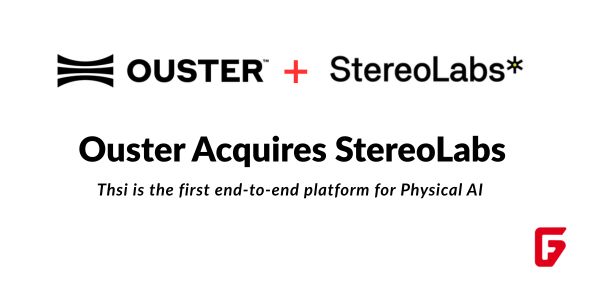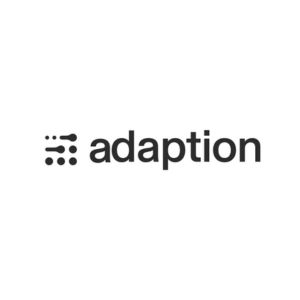Startups & Business News

If you’ve been following the intersection of AI and genomics, you know the field has been waiting for a leap forward. This week, Google DeepMind delivered just that with the launch of AlphaGenome—an AI model designed to tackle one of biology’s most stubborn puzzles: understanding how tiny changes in our DNA, especially in the vast non-coding regions, impact health and disease.
Why Non-Coding DNA Matters
For years, scientists focused on the 1% of the human genome that codes for proteins, but that left 99%—the so-called “junk DNA”—largely unexplored. It turns out, these non-coding regions are packed with regulatory elements: promoters, enhancers, silencers, and insulators that orchestrate when and how genes are switched on or off. Mutations here can be just as important as those in coding regions, sometimes triggering or preventing disease.
AlphaGenome’s Million-Base-Pair Power
What sets AlphaGenome apart isn’t just its AI pedigree; it’s the sheer scale it can handle. The model processes up to a million DNA base pairs at once, mapping out both local and long-range regulatory effects in a single sweep. This is a game-changer for researchers trying to connect the dots between distant regulatory elements and the genes they control.
AlphaGenome’s architecture blends convolutional neural networks (for spotting local DNA patterns) with transformers (for capturing long-range interactions). It doesn’t just look for whether a regulatory element exists—it predicts how a single mutation might ripple through the genome, affecting gene expression, splicing, chromatin structure, and more.
Single-Nucleotide Variant (SNV) Prediction: No More Guesswork
Every human genome contains about three million single-nucleotide variants. The big question: which ones matter? AlphaGenome answers this by comparing the predicted effects of reference and mutated sequences, offering insights into how specific changes might disrupt gene regulation across different tissues.
The model has outperformed previous tools on nearly every benchmark, especially when it comes to complex tasks like predicting the impact of mutations on splice sites—critical for understanding diseases like spinal muscular atrophy. And it does all this in less than a second per variant on modern hardware.
What This Means for Genomics
AlphaGenome’s ability to analyze massive stretches of DNA and deliver single-base resolution predictions is a major step toward unlocking the regulatory genome. For geneticists, clinicians, and anyone interested in precision medicine, this could mean faster, more accurate identification of disease-causing variants—even in regions that traditional genetic tests overlook.
The future of genomics is here, and it’s powered by AI that finally speaks the language of our entire genome—not just the parts we already understood.

futureTEKnow
Editorial Team
futureTEKnow is a leading source for Technology, Startups, and Business News, spotlighting the most innovative companies and breakthrough trends in emerging tech sectors like Artificial Intelligence (AI), Robotics, and the Space Industry.
Discover the companies and startups shaping tomorrow — explore the future of technology today.
Trending Companies
Latest Articles

Dwelly Raises $93M to Supercharge AI-Powered UK Rentals Roll-Up
London startup Dwelly just landed $93M to snap up UK rental agencies and inject AI smarts. Founders from Uber and

Encord Raises $60M Series C: Fueling Physical AI Data Wave
Encord just landed $60M in Series C funding to supercharge data tools for physical AI. Founders Eric Landau and Ulrik

Foodforecast Raises €8M Series A to Slash Ultra-Fresh Food Waste with AI
Foodforecast, a Cologne AI foodtech firm, just scored €8M in Series A funding led by SHIFT Invest. Their tools predict

AI-Driven Operational Excellence: How Leaders Scale Ownership, Discipline, and Continuous Improvement in 2026
In 2026, AI scales operational excellence fundamentals—clear ownership, disciplined execution, and continuous improvement—letting leaders focus on outcomes while systems handle

VoiceLine raises €10M to scale voice AI for enterprise frontline teams
Munich-based VoiceLine has closed a €10M Series A round to grow its voice AI platform for frontline sales and service

AI-Driven Logistics & Distribution Transformation: From Insight to Scalable Impact
AI is redefining logistics transformation—from network design to real-time execution. This article explores how data-driven insight, intelligent automation, and scalable

Hai Robotics Hong Kong IPO: From Startup Funding to Warehouse Robot Leader
Shenzhen’s Hai Robotics, pioneer in ACR warehouse robots, files for HK IPO after raising over $500M in funding rounds led

AI-Enabled Process Engineering & Continuous Improvement: Designing Systems That Learn
Explore how AI transforms process engineering and continuous improvement into self-learning systems. This article explains how organizations can design operations

Ouster Acquires StereoLabs: Unified Physical AI Sensing Platform Launches
Ouster’s $35M StereoLabs acquisition fuses lidar and ZED cameras into end-to-end Physical AI sensing. Founders Cecile Schmollgruber and team drive

Bretton AI Lands $75M Series B Funding to Scale AI Agents for Financial Crime and AML/KYC Compliance
Bretton AI’s $75M Series B modernizes AML KYC compliance via AI agents, slashing staffing costs for banks and fintechs like

Axiom Space Raises $350M to Build Commercial Space Station and NASA Spacesuits
Axiom Space has locked in a fresh $350M raise to push its commercial space station and NASA lunar spacesuits toward

Santé Raises $7.6M Seed: AI Fintech Revolution for Wine and Liquor Retail
New York startup Santé secures $7.6M seed to build AI-powered POS for liquor stores, tackling regs & inventory woes after
futureTEKnow is focused on identifying and promoting creators, disruptors and innovators, and serving as a vital resource for those interested in the latest advancements in technology.
© 2026 All Rights Reserved.
![Discover the top 10 AI companies in Germany [1st Edition], revolutionizing industries with cutting-edge technology and innovations.](https://futureteknow.com/wp-content/uploads/2025/02/Top-10-AI-Companies-in-Germany-Leading-the-Tech-Revolution-futureTEKnow.jpg)







